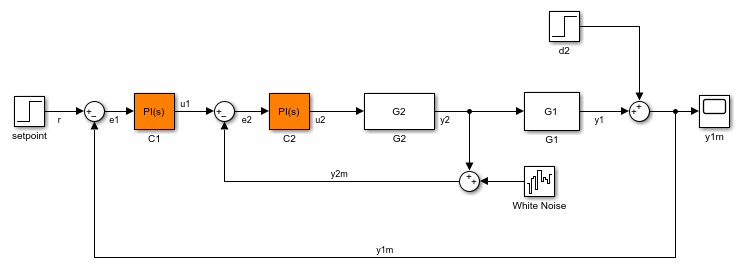getTunedValue
Get current value of tuned variable in slTuner interface
Syntax
Description
getTunedValue lets you access the
current value of a tuned
variable within an slTuner interface.
An slTuner interface parameterizes each tuned block as a Control
Design Block, or a generalized parametric model of type genmat or genss.
This parameterization specifies the tuned variables for commands such
as systune.
Examples
Input Arguments
Output Arguments
More About
Version History
Introduced in R2015b
See Also
slTuner | setTunedValue | getBlockParam | getBlockValue | tunableSurface


